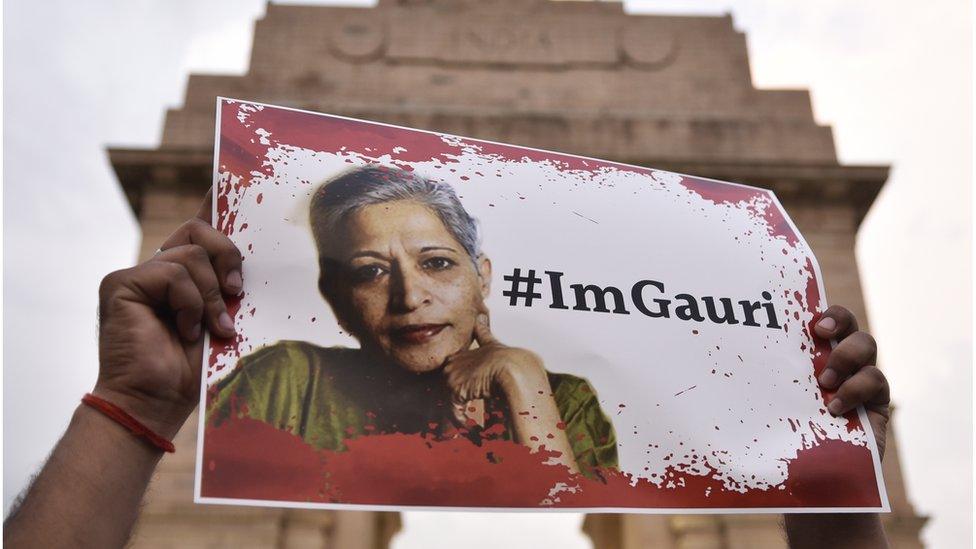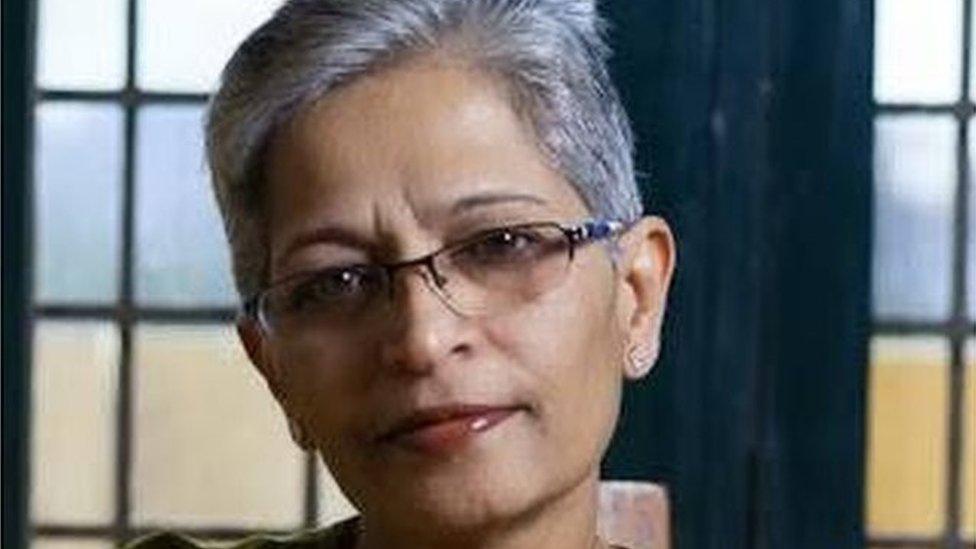Gauri Lankesh: Weapon link in India journalist murder case
- Published

The murder of Gauri Lankesh prompted protests across India
A forensic report shows that the same weapon used in the murder of Indian journalist Gauri Lankesh was used to kill a rationalist scholar in 2015.
Police told BBC Hindi the discovery was "a breakthrough", but are yet to arrest the main suspect in both cases.
Ms Lankesh and Malleshappa Kalburgi were both shot dead outside their homes in the southern state of Karnataka.
They had angered Hindu right-wing groups for their views criticising Hindu extremism.
Dr Kalburgi, a well-known secular thinker, was murdered in August 2015, while Ms Lankesh was found in a pool of her own blood in September 2017. New information shows that both were shot with the same 7.65mm pistol.
The high-profile academic was shot dead a year after he made remarks against idol worship, which had angered Hindu right-wing groups. Ms Lankesh, too, was a trenchant critic of Hindu extremism and campaigned against religious fundamentalism.
Officials recovered three bullets from Ms Lankesh's body and four empty cartridges from the murder site. These were compared with two bullets and their cartridges found where Dr Kalburgi was shot.
It is unclear why the forensics report, which provided a connection between the two cases, took around eight months to produce. But police have hailed this finding as a new lead, especially since there were no arrests in the case of Dr Kalburgi.
A man named Naveen Kumar was arrested in March for allegedly supplying weapons in connection to the murder of Ms Lankesh. At the time, police said that Mr Kumar was not the main accused in the case.
At least four other suspects have also been questioned.
Ms Lankesh was the most high-profile Indian journalist murdered in years. A week after her death, there were protests against her killing in several Indian cities, including the capital, Delhi. Known for her left-leaning views, she edited a weekly newspaper and fiercely opposed the caste system.
Hindu nationalists have increasingly targeted journalists and people with secular views in recent years. Those seen to be critical of Hindu nationalists have been berated on social media, while many women reporters have been threatened with rape and assault.
The Committee to Protect Journalists has ranked India as a country with a poor record in safeguarding journalists. Their research shows that at least 27 journalists have been murdered because of their work, external in India since 1992.
- Published9 March 2018

- Published6 September 2017